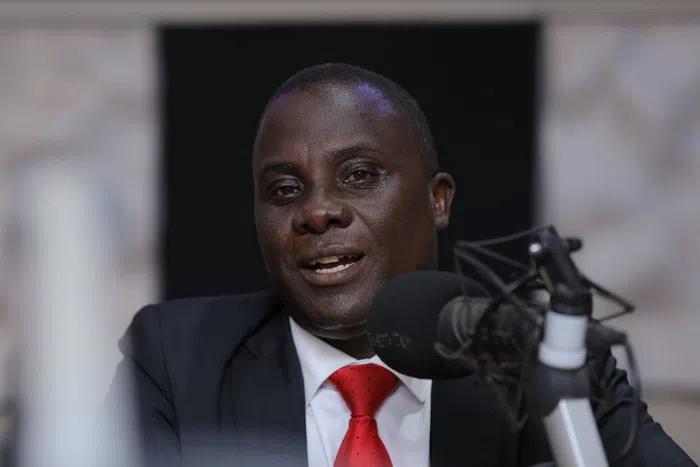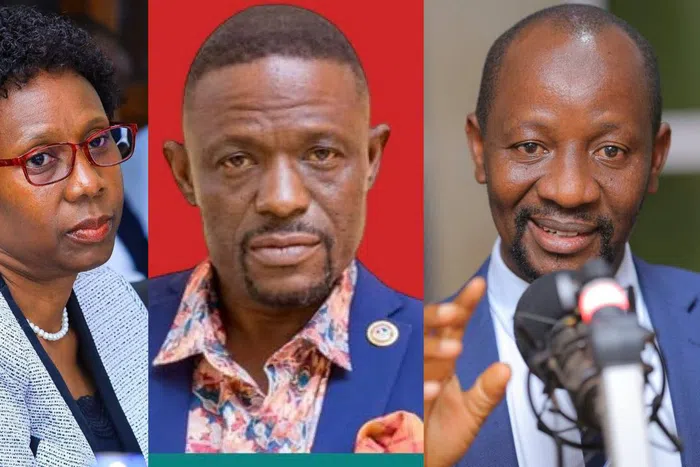

Date: September 8, 2025
Author: Anonymous
In a dramatic turn of events, Kilmar Abrego Garcia, a Salvadoran national at the center of a high-stakes immigration battle, has rejected the U.S. government’s plan to deport him to Uganda, citing fears of torture and persecution. Instead, Garcia—whom U.S. authorities allege is a member of the MS-13 gang—has been notified that he now faces deportation to the tiny African kingdom of Eswatini, formerly known as Swaziland .
Background: A Case of Wrongful Deportation and Legal Battles
Kilmar Abrego Garcia, a Maryland father married to a U.S. citizen and father to children with special needs, has been entangled in a protracted legal fight with the Trump administration since his wrongful deportation to El Salvador in March 2025. Despite a 2019 immigration court ruling granting him protection due to risks of gang violence in El Salvador, Garcia was deported in what the government later admitted was an “administrative error” .
During his nearly three-month detention in El Salvador’s notorious CECOT prison, Garcia alleges he suffered severe beatings, psychological torture, and inhumane conditions. His lawyers detailed how he was forced to kneel overnight, denied bathroom access, and confined in overcrowded cells with bright lights and no windows . After the Supreme Court unanimously ordered his return to the U.S., Garcia was brought back only to face federal smuggling charges in Tennessee, which he denies .
From Uganda to Eswatini: A Shifting Deportation Strategy
The Trump administration initially sought to deport Garcia to Uganda, a country with which he has no ties. Garcia objected, arguing that he feared persecution or torture there, particularly given Uganda’s record of handling opposition supporters . In response, Immigration and Customs Enforcement (ICE) officials abruptly shifted course, notifying Garcia on August 25, 2025, that his “new country of removal” would be Eswatini .
An ICE email obtained by CBS News dismissed Garcia’s fears as “hard to take seriously,” noting that he had claimed through his attorneys to fear persecution in at least 22 countries . However, the administration’s choice of Eswatini aligns with its broader strategy of striking agreements with nations willing to accept third-country deportees. Earlier this year, the U.S. sent five convicts from Asia and Latin America to Eswatini, where they are reportedly held in solitary confinement .
Why Eswatini?
Eswatini, Africa’s last absolute monarchy, is one of several countries—including Uganda, Rwanda, and South Sudan—that have agreed to accept U.S. deportees under confidential agreements . The Trump administration has aggressively pursued such deals to overcome logistical hurdles in its deportation campaign, particularly when home countries refuse to take back their nationals .
For Garcia, Eswatini may seem a preferable alternative to Uganda, given the lack of publicly documented “bad records” specifically targeting deportees. However, the country faces significant human rights challenges, including overcrowded prisons, reports of arbitrary killings, and torture by government forces . Opposition groups in Eswatini have vehemently protested the arrival of U.S. deportees, accusing the U.S. of treating Africa as a “dumping ground” .
Legal and Humanitarian Concerns
Garcia’s case highlights the unprecedented expansion of the U.S. deportation regime under President Trump. The administration has secured Supreme Court rulings allowing third-country deportations with minimal due process and increased ICE’s budget to nearly $30 billion, enabling record numbers of arrests and detentions .
Human rights organizations argue that deportations to countries like Eswatini violate the U.N. Convention Against Torture, which prohibits refoulement—the transfer of individuals to places where they risk torture . The Southern Africa Litigation Centre has challenged the U.S.-Eswatini agreement in court, arguing that it violates Eswatini’s constitution by lacking parliamentary ratification and public scrutiny .
Garcia’s Status and Next Steps
Despite the government’s allegations, Garcia denies any affiliation with MS-13. His attorneys have called the smuggling charges “vindictive and selective,” arguing that the administration is weaponizing the law to punish him for asserting his rights . Garcia remains in ICE custody in Virginia as his lawyers fight both the criminal charges and deportation proceedings .
The administration has previously offered to deport Garcia to Costa Rica—which offered him legal status—in exchange for a guilty plea, but he refused . His legal team is expected to challenge the deportation to Eswatini, just as they successfully halted his removal to Uganda .
International Repercussions
The U.S. policy of deporting third-country nationals to African nations has sparked outrage across the continent. Nigeria’s foreign minister accused the U.S. of “mounting considerable pressure” on African countries to accept deportees, potentially leveraging trade tariffs and visa restrictions . South African officials have expressed security concerns, warning that deportees might attempt to cross porous borders into their country .
In Eswatini, civil society groups have condemned the agreement as “neo-colonial exploitation,” arguing that the country’s sovereignty is being traded for unclear political or economic gains . Government spokespersons have refused to disclose the terms of the deal, citing classified information .
Conclusion: A Symbol of Broader Immigration Policies
Kilmar Abrego Garcia’s case has become a symbol of the Trump administration’s aggressive immigration enforcement tactics. From wrongful deportation and torture in El Salvador to the looming threat of removal to a distant African nation with no connection to him, Garcia’s ordeal underscores the human rights risks inherent in policies that prioritize deportation over due process .
As legal challenges unfold in both U.S. and Eswatini courts, the world watches to see whether Garcia will be deported to Eswatini—and whether the U.S. will continue to expand its global network of deportation agreements at the expense of vulnerable migrants.
For further details, refer to the original sources: CBS News, Newsweek, and CNN.






